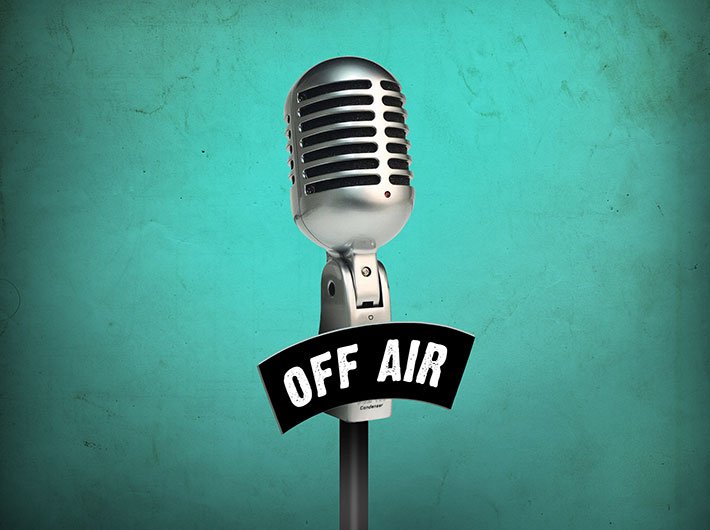The delay in licences to community radio stations is hampering their potential for growth and empowerment of people
Bhaskar Bhuiyan from Assam applied for a community radio licence back in 2010. It has been five years now and he is still waiting for the final clearance. Bhuiyan’s case is not an exceptional one. As per a UNESCO report, since 2012, only 11 percent of the applications for community radio stations have been accepted by the Indian government. In spite of evidence that community radio can act as a beneficial tool for reaching out to the rural population and those living on the periphery, the government seems hesitant to issue such licences.
The guidelines issued by the ministry of information and broadcasting state that an applicant needs to be a three-year-old educational institute, an agricultural institute or an NGO to get a licence. They must also seek clearances from the ministries of home affairs, defence, information and broadcasting, and the department of telecommunications. But it is these clearances that seem to have become the biggest hurdle.
“For a licence you need approvals from 20 different departments. Officially, the process takes about nine months, but in reality it takes about two years,” Sajan Venniyoor, founding member of the Community Radio Forum, told Governance Now. Additionally, the government has been changing the guidelines quite frequently. A case in point is the ad-hoc decision of the government to first increase the annual fee of a wireless operator’s licence (WOL) to Rs 91,000 and then bringing it back to its original Rs 19,000 after widespread condemnation.
Earlier this year R Jaya, joint secretary in the ministry for information and broadcasting, said the ministry would make licensing a single-window mechanism. “We are trying to move towards it. There are several institutional mechanisms in place, which help us to expedite the permissions,” Jaya told Governance Now. “We have a coordination committee chaired by the director. Then we have a screening committee headed by the joint secretary that looks at applications from the point of view whether they fulfill the criteria laid down for community radio.”
The coordination committee is also expected to help with clearances from other ministries. After all the clearances are obtained, the inter-ministerial committee (IMC) gives the official permission. “IMC is a decision-making body chaired by the secretary of the ministry of information and broadcasting,” said Jaya. The ministry, however, has its own share of concerns regarding the licensing process, as sometimes the applicants lose interest midway, as the process is time- and money-consuming. “Many of our concerns begin after permissions are given. A licence may not be granted eventually because of procedural issues. We cannot start the operationalisation and sign the grant of permission agreement (GOPA). We are trying to see what mechanisms can be put in place which would help people with letters of intent. For instance, we are working with the MHA for giving security clearance in a time-bound manner.”
Gap between policy and practice
There is a potential of establishing a community radio station at an average distance of 15 km. The ministry had envisioned in 2007 that at least 4,000 such stations would be established. Yet, currently there are only 180 operational radio stations. “Since 2012, at least 1,000 applications have been rejected by the ministry without providing any valid reason,” said Venniyoor.
Accepting the difference between the ministry’s projections and the actual number of community radio stations, Jaya said, “There are various reasons. Sometimes frequency allocation becomes an issue. Further, there are many people asking for a licence from a particular area. Several such applications then obviously get rejected. Many applications also get rejected by the screening committee since the applicant has to be a social worker and should have an understanding of the philosophy, principles and guidelines of community radio.”
In several instances, the screening committee also rejects applications as there is a clear mismatch between the concept of the community radio as a medium of the people and the purpose stated in the application. “Stakeholders are also part of the screening process. They are very clear that community radio should have linkages to community ownership,” explained Jaya.
In several border areas, like in Jammu and Kashmir and the northeast, community radio stations are scarce. In fact, there are only three community radio stations in the entire northeast – all of them based out of Assam. “For the northeast, we are looking at what is called media dark areas and understanding the best way to encourage NGOs from those areas to apply,” said Jaya.
The impulse for control
The government’s control is not just limited to the licences. In a recent controversy, all the community radio stations were asked to send in their daily programmes to the ministry. While radio station owners are calling it an extreme step, the government is viewing it as a means of monitoring these radio stations. “It is three-four GB or 18 hours of programme that we need to send to the ministry which is not possible,” explained Venniyoor.
On behalf of the radio station owners, an NGO, Common Cause, has filed a petition in the supreme court challenging the government’s order banning broadcast of news on community radio. “You can force the channels to broadcast ‘Mann Ki Baat’ [prime minister Narendra Modi’s fortnightly radio address to the nation] but not allow news?” said Venniyoor.
ankita@governancenow.com
(The story appears in the August 1-15, 2015 issue)

